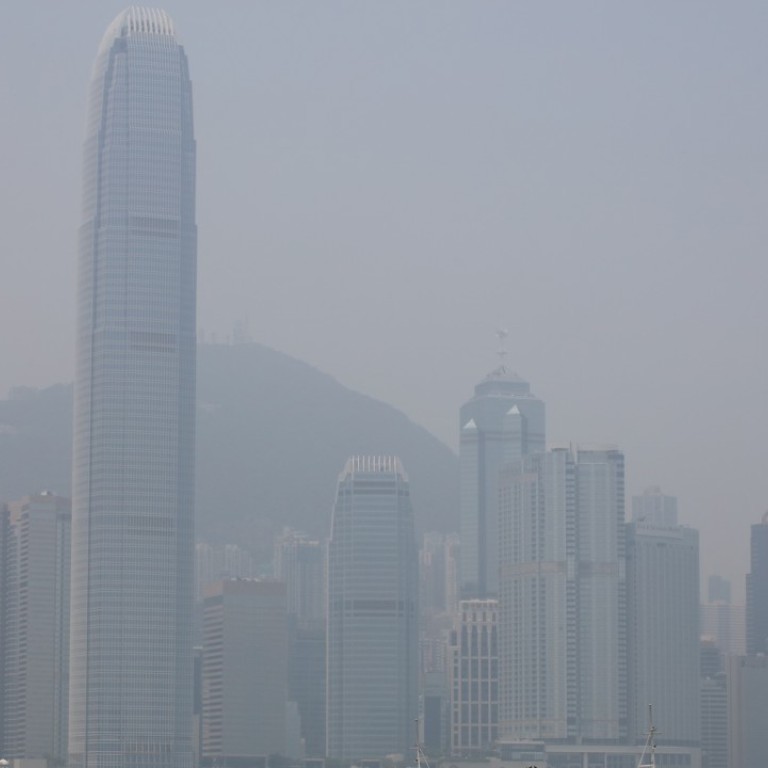
Hong Kong weather remains stifling, ‘very hot’ warning issued despite expected showers
Strong monsoon signal also raised as Observatory warns public to stay away from shoreline
Impending showers could give Hongkongers some relief from dry weather and bad air in the next couple of days.
A southwesterly airstream will bring rain to the coast of eastern Guangdong province and the northern part of the South China Sea in the next few days, the Hong Kong Observatory said.
Under its effect, Tuesday’s weather will be mainly cloudy, with a few showers and sunny intervals in the afternoon.
Despite the expected wind and rain, the weather will remain very hot, with a maximum temperature of about 32 degrees Celsius on Tuesday. But the moderate west to southwesterly winds are expected to help improve air quality.
On Monday, the Observatory issued a “very hot” weather warning at 12.15pm and a strong monsoon signal at 2.30pm.
It warned the public to stay away from shorelines and not engage in water sports, as the sea was becoming rough and gale-force winds were expected.
The Home Affairs Department opened 15 temporary night heat shelters on Monday for people in need of the service. The Observatory reminded people to drink plenty of water and avoid overexertion if engaged in outdoor work or activities.
The weather over the coastal areas of Guangdong was forecast to improve in the latter part of this week under the effect of an anticyclone. The heat however will continue with maximum temperatures between 31 and 33 degrees Celsius. The skies were expected to be clearer as tropical depression Haitang travels across inland Fujian and continues to weaken.
Last Sunday, Hong Kong recorded “very high” to “serious” levels of air pollution across the city, made worse by tropical cyclone Nesat and Haitang as light winds hindered the dispersion of pollutants.

